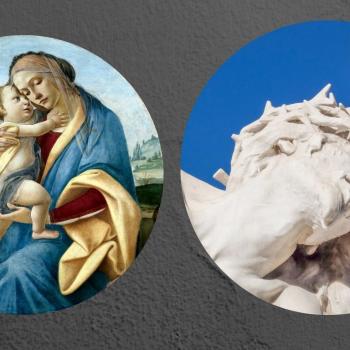DAVID: Your book is about fifty things to do-but how about things to avoid? Any tips about things that are likely to cause problems? Or can be ineffective?
REBECCA: The main thing is not to get hung up on projects that feel heavy, or get sidetracked with ideas that aren't moving anywhere. There are so many ways to start caring for creation that the real mistake is to keep pushing on doors that aren't going to open. You may be in a fairly green church that still uses disposable paper products. For some reason, the church may be doing other great things to help the earth, but you just haven't addressed that issue of disposable paper products. You could address that issue-but it may be a closed door for some reason. So if you get hung up on a single issue like that, you can lose the ability to excite and motivate people and to celebrate all the other opportunities that are available out there. I'd advise congregations to find things you can do-things you can accomplish and celebrate. That's the way to open more doors.
DAVID: What about the common complaint that somebody in the congregation already "is in charge of that"? Some committee or small group already has the environmental issue pretty much locked up.
REBECCA: That's actually a really common problem. People get into small groups that really care about these things, then they get burned out. So, work stops. Nothing happens. People feel frustrated. One thing you can do is talk to your pastor and your staff about this as a pastoral concern. Tell your staff that you're feeling burned out and ask them to help guide you toward better ways of fitting into the larger congregation. Even if your small group is running some programs, you can still be giving the impression that you're the only group who can do this work. It can be very helpful to talk with the top leadership in your church about ideas for making this a larger effort throughout the congregation.
DAVID: You're suggesting that people actually step outside their church doors, as well, right?
REBECCA: Yes. I don't think people should be hung up on the idea that they just have to work through their own congregation all the time. Chances are, you can find other congregations down the road to work with you. You might find a temple or a mosque where there also are five or six really committed people doing this same kind of work. Try to use the ecumenical and interfaith networks where you live.
DAVID: I asked you about things to avoid. Of course, your book offers lots of ideas for environmental action. So, help us focus on your central message. What's the highest priority for you?
REBECCA: My top priorities are concepts like Jubilee and Sabbath as they relate to caring for the earth.
DAVID: Jubilee is a big idea from the Hebrew scriptures. There's a lot to it, but the idea basically is that we don't own God's world-and that, regularly throughout history, we need to take dramatic steps to restore and renew our communities and the land itself. You can read about this in the book of Leviticus-and in the fiftieth chapter of your book.
REBECCA: With these ideas of Jubilee and Sabbath we can challenge the notion that we can keep on consuming at the rate we're consuming now. If we do that, we're going to use up God's resources. Through worship, Bible study, and preaching in our congregations, we can focus on our need to help God's Creation flourish again. Shifting our values is very important to me. You can change light bulbs or you can change your grocery list, but without changing your awareness of how we're living overall on earth-then we really aren't addressing the basic issues.
DAVID: Of course, this isn't just in Leviticus. In the new Green Bible, there are green passages marked cover to cover in the Bible.
REBECCA: Yes, another one of my favorite passages is the story of Noah. For me, this was part of my own original "Ah-Ha!" moment, realizing that we need to connect environmental justice with our religious lives. If you read the story of Noah, after the flood you realize that the covenant is formed not just with Noah and his family. The covenant is formed between God and every living creature. The story is bigger than just one life. It's bigger than just human life. We're part of a story about God's relationship with all living creatures.
This article was originally posted at http://www.ReadTheSpirit.com/.
David Crumm is an author, journalist, and filmmaker with more than twenty years as a Religion Writer for the Detroit Free Press, Knight-Ridder newspapers, and Gannett. Crumm is now the Editor of ReadTheSpirit (www.readthespirit.com) - a new online home for important voices in religion and spirituality.
Read related articles on Caring for Creation:
Caring for Creation Study Guide




